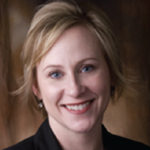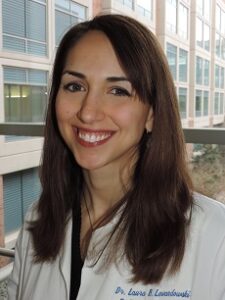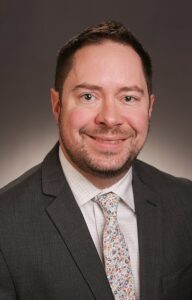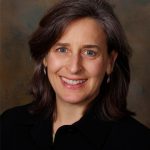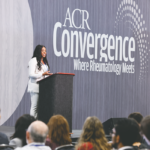ACR CONVERGENCE 2021—Networking—one of the elements that has been missed the most since COVID-19 forced live medical meetings to go virtual—is still possible in a virtual setting, especially with some planning and being aware of the opportunities the meeting platform has to offer, panelists said during ACR Convergence 2021 on Nov. 2.
In a session prior to start of this year’s ACR Convergence, panelists discussed how attendees can take advantage of the event to connect with colleagues. A common theme: To network well, you must approach the meeting with the intention to network well.
“Networking really is a mindset. It helps us to build connections with others, both personally and professionally,” said Kamala Nola, PharmD, MS, chair of pharmacy practice at the Lipscomb University College of Pharmacy, Nashville. “I know I have met many of my best friends at the ACR meetings. I’ve met collaborators. I’ve met those who I want to have a relationship with to really improve my practice and to improve the science.”
But it doesn’t happen by accident. “Make full use of the ACR Convergence platform. Be familiar with that platform before you ever get started,” she said. “Be thoughtful about who it is you want to network with, and don’t forget that you bring something to them as well.”
The ACR will hold Interprofessional Team Networking Forums on Nov. 7 and 8 at 1 p.m. EST. The first is a Diverse Discipline Day, during which professionals can discuss topics relevant to their specialties with peers. The second forum will revolve around Hot Topics, such as advocacy or infusion suites or how to handle insurance considerations.
Afterward, be sure to follow up, Ms. Nola said. Be sure to provide information you told other attendees you would provide.
Sessions, Community Hubs & More
Laura Lewandowski, MD, MS, head of the Lupus Genetics and Global Health Disparities Unit at the National Institute of Arthritis and Musculoskeletal and Skin Diseases (NIAMS), Bethesda, Md., said it’s important to plan your schedule ahead of time and consider why you’re attending a given session. Was it because of the topic or to connect with someone in the session?
“How you approach each session is going to depend on the type of session and also on your own goals for this session,” Dr. Lewandowski said. Trainees and those earlier in their career should consider getting help reviewing their schedule from mentors and peers so they don’t miss important sessions.
At plenaries, don’t hesitate to speak up. “One of the great benefits of the virtual meeting is that it’s very easy to anonymously pop your question into the chat and have it forwarded to the speaker,” Dr. Lewandowski said. “You no longer have to take the brave walk up to the lonely microphone in the middle of the room. [That] makes it a lot more accessible.”
To connect with a speaker afterward, you could send an email reminding them you asked a question and would like to discuss it more, or mention that your question wasn’t addressed and that you’d like to chat about it. You can connect with speakers by clicking on their name in the program. If a session has more than one speaker, you’ll need to click on that specific speaker to bring up their biographical sketch. From that screen, you’ll find ways to send a message, schedule a virtual meeting and follow them on social media. Example: Click here to connect with Dr. Lewandowski. You can also click on the Networking tab for a dropdown menu option to schedule a meeting.
The ACR Convergence Community Hubs are a good way for people with similar interests to discuss sessions and meet new people. They’re coordinated by research or disease interest, she said.
The poster sessions are also a good way to connect. “[A poster session] is a great opportunity to network and make connections because you have one-on-one time with the person who did the research,” Dr. Lewandowski said. “I’d encourage you to look through the posters beforehand and really connect with people at their poster session. They would love to see you there.”
There are also events meant to bolster the fabric of the rheumatology community, such as the #ACRBakeAnythingChallenge, during which attendees are encouraged to bake something and post a picture on social media, inviting responses and interaction.
More Tips
Grant Schulert, MD, PhD, assistant professor of pediatrics at Cincinnati Children’s Hospital Medical Center and chair of the ACR’s Early Career Investigator Subcommittee, offered several suggestions for networking at the meeting.
First, he said, establish your goals. For medical students and residents, this may be as simple as absorbing as much as you can about a career in rheumatology to find out if it’s a good fit for you. For fellows, it may be trying to connect with people who may want to hire you. For junior faculty, it may be starting new collaborations or recruiting fellows or post-docs.
Second, block out your schedule, including canceling clinics, silencing phones and clearing your schedule of other meetings.
“In a virtual meeting, even as hard as you try to minimize [other] things, sometimes life intrudes regardless,” Dr. Schulert said. “But there are things you can do to minimize those distractions to get the most out of the meeting.”
Third, use social media, which can help you find interesting talks and posters and help you engage directly with rheumatologists. It can also help get your own work out there.
Next, use the event platform. “There are some changes in how this looks this year, which I think are going to be for the better,” Dr. Schulert said.
This year, the Community Hubs are more visible and will have threaded discussions to make them easier to use and follow. Also, messaging other meeting participants is now easier. And attendees can also schedule individual meetings, which are like a one-on-one Zoom call.
Finally, follow up, Dr. Schulert said. Send thank you notes to the people you meet. If you talked about job prospects, follow up about it. If you discussed a new project, determine specific next steps, so you don’t lose the momentum.
He strongly suggested “taking some of these concrete steps so you don’t wake up three months later and realize we never actually did anything about these great discussions that we had.”
Thomas Collins is a freelance medical writer based in Florida.
